5 Most Common Childhood Illnesses (And What To Do About Them)
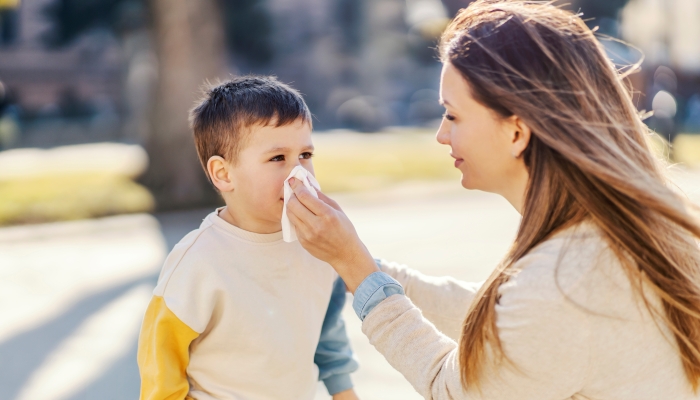
- Some common childhood illnesses may share similar symptoms.
- Though serious complications of common illnesses are rare, they are possible if left untreated.
- There are many types of home remedies available to manage symptoms caused by these and other common childhood illnesses.
If frequent flier miles were available at the pediatrician’s office during my children’s early childhood, I’d be a world traveler by now.
My professional training and experience as a nurse allowed me to identify conditions accurately and respond appropriately. However, what I didn’t learn in nursing school was how to respond as a mother or how to manage common childhood illnesses without a doctor or hospital equipment.
I made so many phone calls to the pediatrician’s office during those first few years. Each time I spoke with the warm, calm staff members, I learned a new trick to help my sick child feel better.
If you’re wondering what to do or how to manage some of the most common childhood illnesses—without adding to your frequent flier miles—read on to learn about some ways to help your child feel better at home.
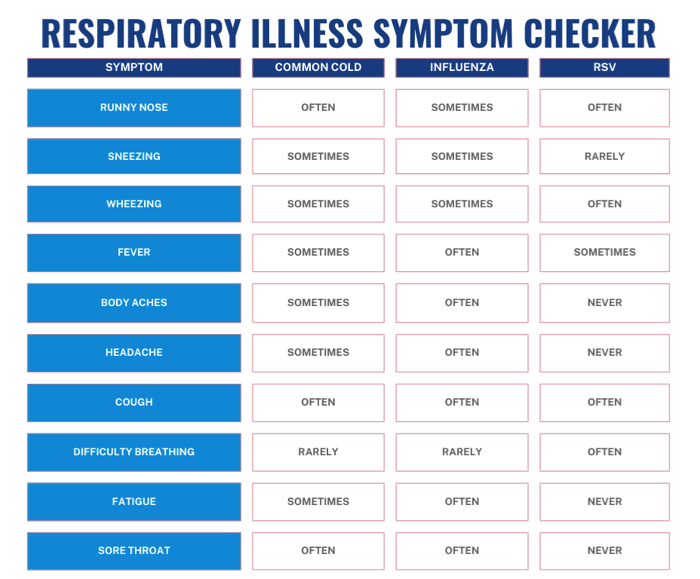
1. Common Cold
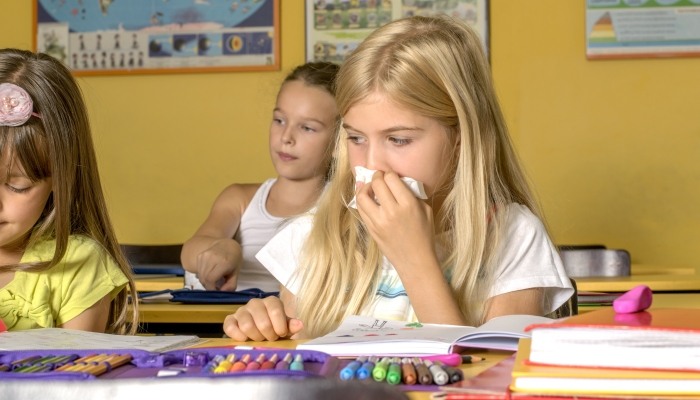
Does it seem like your little one always has a runny nose or mild cold-like symptoms?
There’s a good explanation for the symptoms behind this common childhood illness: Over 200 different viruses are known to cause upper respiratory symptoms and affect children of all ages.
The American Academy of Pediatrics (AAP)11. Children and Colds. HealthyChildren.org. 2022. https://www.healthychildren.org/English/health-issues/conditions/ear-nose-throat/Pages/Children-and-Colds.aspx describes the following symptoms of a common cold:
- Runny nose (drainage is often clear and watery, and may progress to thicker and colored mucus)
- Sneezing
- Fever (usually not more than 101–102℉)
- Decreased appetite
- Sore or scratchy throat
- Cough
- Headache
- Body aches
- Increased fatigue
- Fussiness
Cold viruses are contagious and spread through the air when a sick person coughs or sneezes or through close contact like hugging, kissing, and sharing toys.
Home Remedies
One of my favorite doctors says the best treatment for a cold is “the tincture of time.”
In other words, there’s no cure for the common cold— the best treatment for this type of viral infection is to wait it out.
While you’re waiting, try these home remedies to ease your child’s discomfort:
- Saline nasal rinses or irrigation
- Warm, humidified air through a vaporizer (Another alternative is to run the shower as hot as it will go, strip your children down to just their diaper or underwear, and sit in the bathroom with them to let them breathe the warm, wet air.)
- Increased fluids (hot or cold, depending on your child’s preferences)
- Chicken soup or broth (proven in a 2000 study22. Rennard, B. O., Ertl, R. F., Gossman, G. L., Robbins, R. A., & Rennard, S. I.. Chicken Soup Inhibits Neutrophil Chemotaxis In Vitro. Chest. 2000;118(4), 1150–1157. https://doi.org/10.1378/chest.118.4.1150 to have positive medical benefits)
- Honey in warm water to ease sore throats (avoid giving to children younger than one year of age due to botulism risk)
- Rest
If your child has been ill for longer than two weeks, develops a high fever, has other signs of illness, or you have further concerns, contact your child’s healthcare provider.
2. Ear Infections (Otitis Media)

Otitis media (the medical term for “middle ear infection”) refers to an infected collection of fluid in the middle part of the ear. This common childhood illness can be caused by colds, a sore throat, strep throat, or an upper respiratory infection.
The infected fluid puts pressure on the ear drum, which worsens when your child is laying down, sucking, or chewing. No wonder so many children have difficulty sleeping when they have an ear infection.
Symptoms
Many parents of young children suspect an ear infection when their child begins fussing or rubbing their ear.
However, you may not need to head to the doctor’s office just yet.
Experts from the National Institute on Deafness and Other Communication Disorders33. U.S. Department of Health and Human Services. Ear Infections in Children. National Institute of Deafness and Other Communication Disorders. 2022. https://www.nidcd.nih.gov/health/ear-infections-children (NIDCD) report that ear infections usually come with other symptoms, such as:
- Increased fussiness or crying
- Trouble sleeping
- Complaints of ear pain
- Fever (especially in infants and younger children)
- Fluid draining from the ear
- Clumsiness or problems with balance
- Trouble hearing or responding to quiet sounds
If you notice symptoms of an ear infection that lasts beyond a few days or gets worse, it’s important to have your child’s ears checked by a qualified medical professional.
The Cleveland Clinic44. Ear Infection (Otitis Media). Cleveland Clinic. 2023. https://my.clevelandclinic.org/health/diseases/8613-ear-infection-otitis-media reminds parents that untreated infections (or infections that don’t go away on their own) can spread to the inner ear, bone behind the ear, or even the brain and spinal cord, causing severe, potentially life-threatening infections.
3. Stomach Flu (Gastroenteritis)
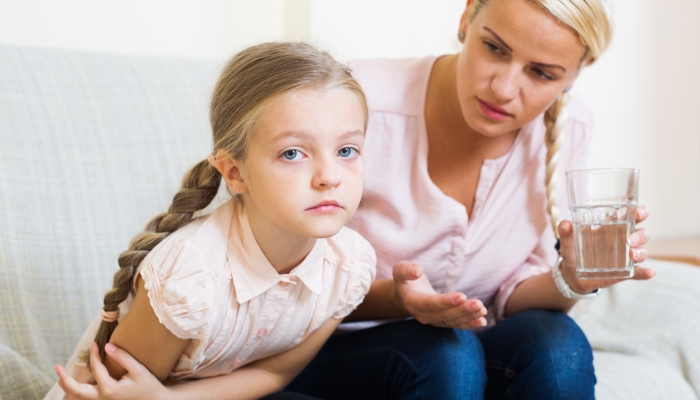
Want to know one of the pet peeves of most medical professionals?
Gastroenteritis (or a “stomach bug”) is not in any way related to the flu (influenza)! Why does the general population give them the same name? No idea.
Maybe because it sounds better than calling it “the pukes,” “poop soup,” or “the trots.”
Symptoms
Chances are, if you’ve ever had a stomach virus, you’re all too familiar with the symptoms.
Typical gastroenteritis can look like a sudden onset of:
- Nausea
- Vomiting (different from spit-up in most infants—vomiting can be quite forceful or projectile55. Vomiting in children. HealthDirect. https://www.healthdirect.gov.au/vomiting-in-children)
- Frequent loose, watery stools
- Abdominal pain or cramps
- Body aches
- Fatigue
- Fever (not always present)
Dietary Recommendations
When I was growing up, one of the top recommendations to assist in recovery from a stomach virus was following a B.R.A.T. diet.
These days, many medical professionals recommend bland, low-residual foods66. Frischmann, S.. Best foods to eat when you have a stomach “bug”. Mayo Clinic Health System. 2023. https://www.mayoclinichealthsystem.org/hometown-health/speaking-of-health/best-foods-to-eat-when-you-have-a-stomach-bug like rice, chicken, crackers, or bananas as a bridge to a normal diet following a stomach illness.
Fluid Replacement
It’s very important to encourage children to continue drinking fluids, even when actively ill. Children are more likely than adults to become dehydrated because they have higher metabolic needs. This means they can quickly become dehydrated when experiencing many childhood illnesses.
Parents can serve their children commercial rehydration solutions like Gatorade or Pedialyte, or even diluted apple juice77. Dilute Apple Juice for Children Rehydration. RACGP. 2017. https://www.racgp.org.au/clinical-resources/clinical-guidelines/handi/handi-interventions/nutrition/dilute-apple-juice-for-children-rehydration for children ages six months and older to treat or prevent dehydration.
If your child has a sticky or dry mouth, sunken soft spot (in babies), urinates less often than normal, or has few or no tears when crying, it’s time to call your child’s doctor or seek emergency medical help.
4. Fevers

Fevers are, admittedly, my least favorite illness symptom. Sometimes they occur as a part of many common childhood illnesses, and sometimes they happen for no apparent reason at all.
My perspective on fevers began to change when I learned that it’s a top protective mechanism88. Wrotek, S., LeGrand, E. K., Dzialuk, A., & Alcock, J.. Let fever do its job: The meaning of fever in the pandemic era. Evolution, Medicine, and Public Health. 2020;9(1), 26–35. https://doi.org/10.1093/emph/eoaa044 the body uses to fight off illnesses: If you heat the body hot enough, it’ll burn off whatever offending bacteria or virus is trying to make your child sick.
To Treat or Not to Treat?
Many parents reach for fever-reducing medication as soon as the thermometer signals an elevated temperature.
While there’s nothing necessarily wrong with that response, the question can be asked: Does your child’s fever actually need to be treated?
For most children, it’s safe to let the fever run its course and monitor them for symptoms of other childhood illnesses.
However, the AAP99. Fever: When to Call the Pediatrician. HealthyChildren.org. 2022. https://www.healthychildren.org/English/health-issues/conditions/fever/Pages/When-to-Call-the-Pediatrician.aspx states parents should promptly call their child’s doctor that if their child is younger than 12 weeks of age and has a temperature of 100.4℉ or greater, is unusually drowsy or acts very ill, has a severe headache or sore throat, is immunocompromised, or has a seizure because of the fever.
5. Influenza and RSV

To children and adults who have never had influenza or RSV (respiratory syncytial virus), these terms might be interchangeable and describe different severities of the common cold or even a sinus infection.
However, influenza and RSV are their own separate illnesses that are each caused by a virus and happen to share similar features with other common childhood conditions.
Experts at Nationwide Children’s Hospital1010. Your Guide to Respiratory Season. Nationwide Children’s Hospital. https://www.nationwidechildrens.org/family-resources-education/respiratory-illness-guide compared the symptoms of these viral infections in the following table:
| Symptom | Common Cold | Influenza | RSV |
| Runny or stuffy nose | Often | Sometimes | Often |
| Sneezing | Sometimes | Sometimes | Rarely |
| Wheezing | Sometimes | Sometimes | Often |
| Fever | Sometimes | Often | Sometimes |
| Body aches/pains | Sometimes | Often | Not present |
| Headache | Sometimes | Often | Not present |
| Cough | Often | Often | Often |
| Shortness of breath/difficulty breathing | Rarely | Rarely | Often |
| Fatigue | Sometimes | Often | Not present |
| Sore throat | Often | Often | Not present |
Because these conditions are caused by exposure to a virus, the best treatment is supportive care (similar to that for the common cold). They do not require antibiotics to treat the infection unless complications occur (such as pneumonia).
Vaccination
While these common illnesses may be easily treated or managed by healthy children, they can have devastating consequences for very young children, particularly those who were born prematurely, experienced low birth weight, are immunosuppressed, or have other serious conditions or chronic illnesses.
Vaccination is available for influenza and RSV, which helps reduce the likelihood of contracting these viral infections and reduces the severity of a child’s illness if contracted.
While managing a sick child can be stressful, it may bring some peace of mind to know that most children can navigate these and other common childhood illnesses without complications. If you’re wondering how to appropriately manage your child’s health care while they recover at home, your child’s medical team is always available to assist you.
References
- Children and Colds. HealthyChildren.org. (2022, March 3). https://www.healthychildren.org/English/health-issues/conditions/ear-nose-throat/Pages/Children-and-Colds.aspx
- Rennard, B. O., Ertl, R. F., Gossman, G. L., Robbins, R. A., & Rennard, S. I. (2000). Chicken Soup Inhibits Neutrophil Chemotaxis In Vitro. Chest, 118(4), 1150–1157. https://doi.org/10.1378/chest.118.4.1150
- U.S. Department of Health and Human Services. (2022, March 16). Ear Infections in Children. National Institute of Deafness and Other Communication Disorders. https://www.nidcd.nih.gov/health/ear-infections-children
- Ear Infection (Otitis Media). Cleveland Clinic. (2023, July 6). https://my.clevelandclinic.org/health/diseases/8613-ear-infection-otitis-media
- Vomiting in children. HealthDirect. (n.d.). https://www.healthdirect.gov.au/vomiting-in-children
- Frischmann, S. (2023, October 20). Best foods to eat when you have a stomach “bug.” Mayo Clinic Health System. https://www.mayoclinichealthsystem.org/hometown-health/speaking-of-health/best-foods-to-eat-when-you-have-a-stomach-bug
- Dilute Apple Juice for Children Rehydration. RACGP. (2017, February). https://www.racgp.org.au/clinical-resources/clinical-guidelines/handi/handi-interventions/nutrition/dilute-apple-juice-for-children-rehydration
- Wrotek, S., LeGrand, E. K., Dzialuk, A., & Alcock, J. (2020). Let fever do its job: The meaning of fever in the pandemic era. Evolution, Medicine, and Public Health, 9(1), 26–35. https://doi.org/10.1093/emph/eoaa044
- Fever: When to Call the Pediatrician. HealthyChildren.org. (2022, December 2). https://www.healthychildren.org/English/health-issues/conditions/fever/Pages/When-to-Call-the-Pediatrician.aspx
- Your Guide to Respiratory Season. Nationwide Children’s Hospital. (n.d.). https://www.nationwidechildrens.org/family-resources-education/respiratory-illness-guide
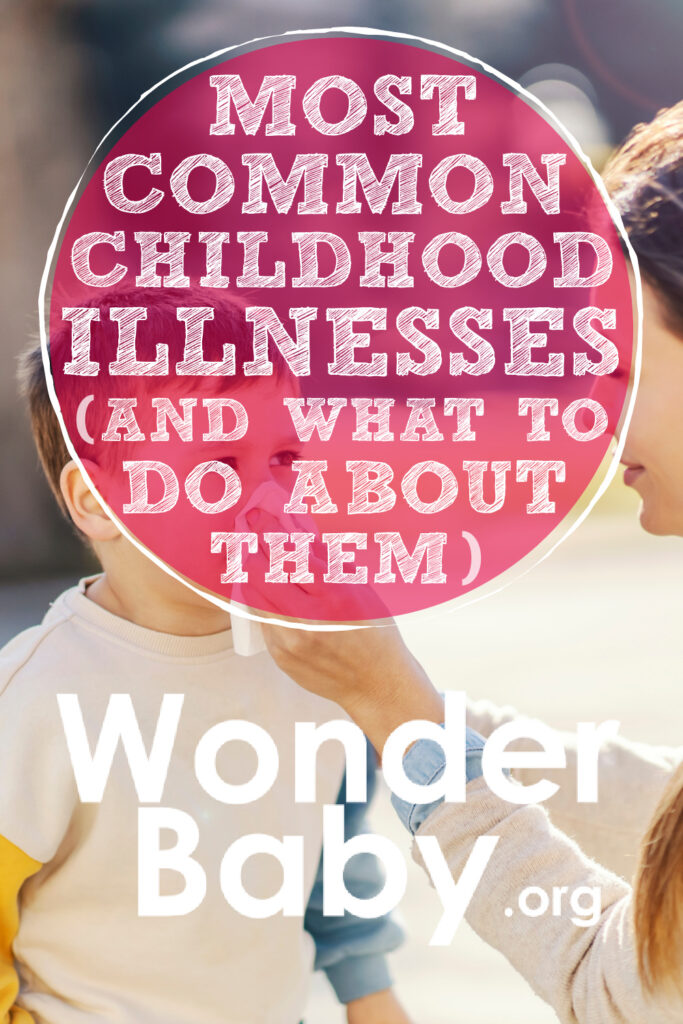
The information WonderBaby provides is not intended to be, and does not constitute, medical or other health advice or diagnosis and should not be used as such. Always consult with a qualified medical professional about your specific circumstances.
Related Posts

Eye Conditions and Syndromes, Visual Impairment
Neuralink Announces Plans to Restore Sight to the Blind with Brain Chip
Elon Musk’s company Neuralink has announced plans to begin human trials of its new “Blindsight” brain chip by the end of 2025.

Health & Nutrition
Can Baby Skin Care Products Expire?
Is that forgotten tube of diaper rash cream still safe to use? Learn more about the expiration dates of popular skin care products for infants.

Health & Nutrition
Boosting Immunity in Kids: 3 Tips for a Healthy Winter
Parents can help boost their kids’ immunity during cold and flu season by maintaining healthy eating, sleeping, and exercising habits in the winter.